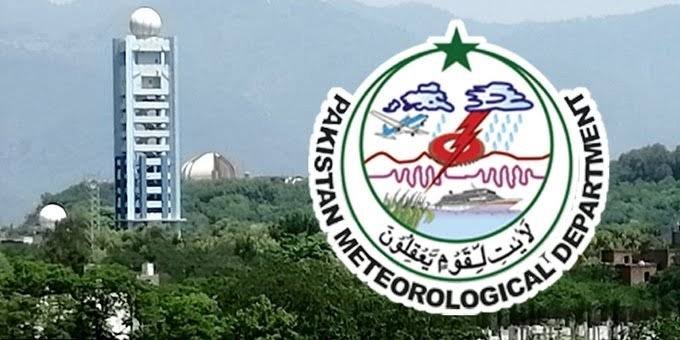Severe Heatwave Alert Issued by PMD: Pakistan Braces for Extreme Temperatures from June 18–20
Islamabad, June 2025 – The Pakistan Meteorological Department (PMD) has officially issued a severe heatwave warning for most parts of the country, especially the plains, forecasting intense and prolonged high temperatures from June 18 to June 20. This alarming development has prompted authorities and health experts to urge citizens to take serious preventive measures to safeguard their health, livelihood, and infrastructure.
According to the PMD’s special weather advisory, daytime temperatures are expected to soar significantly above normal, with the central and southern parts of Punjab, Sindh, and parts of Balochistan and Khyber Pakhtunkhwa likely to be the hardest hit. Urban centers such as Lahore, Multan, Faisalabad, Karachi, Hyderabad, Sukkur, Bahawalpur, Sibi, Dera Ghazi Khan, and Peshawar are likely to experience daytime highs of 44°C to 48°C (111°F to 118°F) during this period.
What Is a Heatwave?
A heatwave is defined as a period of abnormally high temperatures that last for several days and can pose a serious threat to human health, agriculture, energy consumption, and ecosystems. The World Meteorological Organization (WMO) notes that heatwaves are becoming increasingly frequent and severe due to global climate change, particularly in South Asia Pakistan.
In Pakistan, these extreme weather events are now becoming annual occurrences, affecting millions and placing enormous pressure on health services, power grids, and the agricultural economy Pakistan.
PMD’s Warning and Key Advisories
In its warning, the PMD emphasized that:
-
High pressure systems in the upper atmosphere are leading to a stagnant air pattern, trapping heat and reducing wind flow.
-
There will be little to no cloud cover, increasing solar radiation exposure.
-
Nighttime temperatures will also remain high, providing little relief, especially in urban areas suffering from the urban heat island effect.
To mitigate the impacts of this upcoming heatwave, the PMD has advised the general public to:
-
Avoid exposure to direct sunlight during peak heat hours (11 a.m. to 4 p.m.)
-
Increase water and fluid intake to stay hydrated Pakistan
-
Wear light-colored, loose-fitting cotton clothing Pakistan
-
vUse umbrellas, caps, or wet cloths to protect the head when outdoors
-
v
-
Keep emergency contacts and medical kits handy, especially forPakistan thePakistan elderly and sick
Vulnerable Groups at Greatest Risk
Experts have highlighted that certain segcccccccccccccccccccccccccccccccccccccccccccccccccccccccccccccccccccccccccccccccccccccccccccccccccccccccccccccccccccccccccccccccments of the population are especially vulnerable to extreme heat conditions. These include:
-
Young children, who are more likely to become dehydrated quickly Pakistan
-
Elderly citizens, particularly those with pre-existing heart or respiratory conditions Conditions
-
Outdoor laborers, such as construction workers, farmers, and traffic personnel Conditions
-
Homeless populations or those without electricity or access to coolingPakistan Conditions
-
Pregnant women, who require increased hydration and rest Pakistan
Hospitals across the country have been instructed to remain on high alert, and local governments are being urged to set up heatwave response centers, similar to those used during previous years in Karachi and Lahore.
Health Risks from Extreme Heat
Dr. Asad Malik, a senior physician at PIMS Islamabad, warns that heat-related illnesses can escalate quickly if symptoms are ignored. The primary medical conditions associated with heatwaves include:
-
Heat Exhaustion:
Symptoms include dizziness, nausea, headache, excessive sweating, and muscle cramps. If untreated, this can escalate into a more severe condition. -
Heatstroke:
This is a medical emergency. It occurs when the body’s core temperature rises above 40°C (104°F) and can lead to confusion, seizures, and loss of consciousness. Without immediate treatment, heatstroke can be fatal. -
Dehydration:
Due to increased perspiration, the body loses essential fluids and salts, leading to weakness, low blood pressure, and in severe cases, organ failure. -
Respiratory Distress:
People with asthma, COPD, or heart conditions may experience worsened symptoms due to the hot, stagnant air.
Dr. Malik emphasized that recognizing the early signs of heat stress and responding promptly can save lives. He also advised people to check in on neighbors, particularly those living alone or without fans or air conditioning.Economic and Environmental Impact of Heatwaves
The consequences of heatwaves are not limited to human health alone. The economic and environmental toll can be devastating:
1. Electricity Demand and Power Shortages
Pakistan’s already fragile electricity grid is expected to experience surging demand, particularly during afternoon and evening hours when people use fans, coolers, and air conditioners. Cities like Lahore and Karachi, which are already dealing with load-shedding, may face even longer and more unpredictable outages, worsening living conditions for residents Conditions.
Power utilities like WAPDA and K-Electric are being urged to increase generation capacity and manage loads more efficiently during the heatwave window.
2. Agricultural Stress
Pakistan’s agricultural economy is also at risk. Farmers have reported that early heatwaves in recent years have scorched crops such as wheat, sugarcane, and cotton. Excessive heat reduces the quality of fruits and vegetables, damages plant growth, and requires increased irrigation Conditions.
In Sindh and South Punjab, where tube wells and irrigation systems depend on electricity, power outages during heatwaves could lead to further crop loss.
3. Water Shortages
Heatwaves increase water demand across all sectors—residential, agricultural, and industrial. Yet, in many parts of Balochistan and interior Sindh, communities already face chronic water scarcity Conditions.
Water tankers in Karachi, Hyderabad, and Quetta are expected to increase prices due to higher demand. Citizens are advised to store water safely and avoid wastage during this critical period Pakistan.
4. Livestock and Wildlife
Farm animals and wildlife are also under severe stress during high temperatures. Without sufficient shade or water, livestock can suffer from dehydration, heatstroke, and even death, which impacts rural incomes. Wildlife in arid zones is likely to migrate or perish due to shrinking water bodies and dried vegetation.
US Lifts Ban on Student Visas with This New Rule
Read This Artical
Government and Community Response
The National Disaster Management Authority (NDMA) has issued a circular to all provincial governments, urging immediate preparation for the heatwave. Measures being recommended include:
-
Establishing temporary cooling shelters in urban neighborhoods
-
Equipping local clinics with oral rehydration salts and IV drips
-
Organizing awareness campaigns through media, mosques, and schools
-
Mobilizing community volunteers to help vulnerable neighbors
-
Ensuring firefighters and rescue services are on standby
In Karachi, the Sindh government has activated its “Heatwave Emergency Plan,” which includes converting government buildings into shaded rest centers for outdoor workers.Conditions
In Punjab, district-level disaster management authorities (DDMAs) have been instructed to monitor water supplies and issue SMS alerts to residents when temperatures are expected to spike.vConditions
Citizen-Led Efforts
While government action is crucial, community-level awareness can make a huge difference. Civil society groups and NGOs are stepping up by:
-
Distributing free water bottles, juices, and caps at public transport hubs
-
Providing mobile hydration vans in labor-intensive neighborhoods
-
Setting up first-aid booths in markets and religious centers
People are also using social media to share heatwave tips, report areas lacking electricity, and organize volunteer-led cooling drives for roadside workers and traffic police.Conditions
Schools and Workplaces: Adjusting Schedules
Several educational institutions in Punjab and Sindh have announced shortened school hours or temporary closures to protect children from exposure during peak heat times. Parents are being advised to:
-
Dress children in light cotton uniforms
-
Provide extra water bottles
-
Encourage indoor play during extreme days
Meanwhile, private sector companies are being encouraged to adopt flexible or remote work arrangements, particularly for employees who commute during midday hours.Conditions
Outdoor industries like construction, delivery services, agriculture, and road maintenance are being requested to restructure shifts to avoid peak heat hours.
Long-Term Climate Concerns
Experts say that the increasing frequency of heatwaves in Pakistan is directly linked to climate change. Rising global temperatures, melting glaciers, and urban deforestation are creating hotter, drier, and more erratic weather patterns.
A recent study by the Asian Development Bank (ADB) warns that by 2050, heatwaves in Pakistan may last twice as long and be more intense, potentially displacing millions and reducing GDP by several percentage points annually Conditions Conditions.
Climate scientists are urging the government to invest in:
-
Urban tree plantations
-
Reflective roofing for homes
-
Green public transport systems
-
Water harvesting and conservation technologies
Conclusion: Stay Informed, Stay Safe
As the country braces for oppressive heat from June 18 to 20, the PMD’s warning is a call to action—not just for authorities, but for every individual.
The coming days will test the resilience of communities, health systems, and infrastructure. But with timely precautions, responsible behavior, and collective support, the nation can withstand the challenges of this heatwaveConditions.
Remember, heatwaves are not just about temperature—they are about survival. Stay hydrated, stay cool, and stay connectyed.




